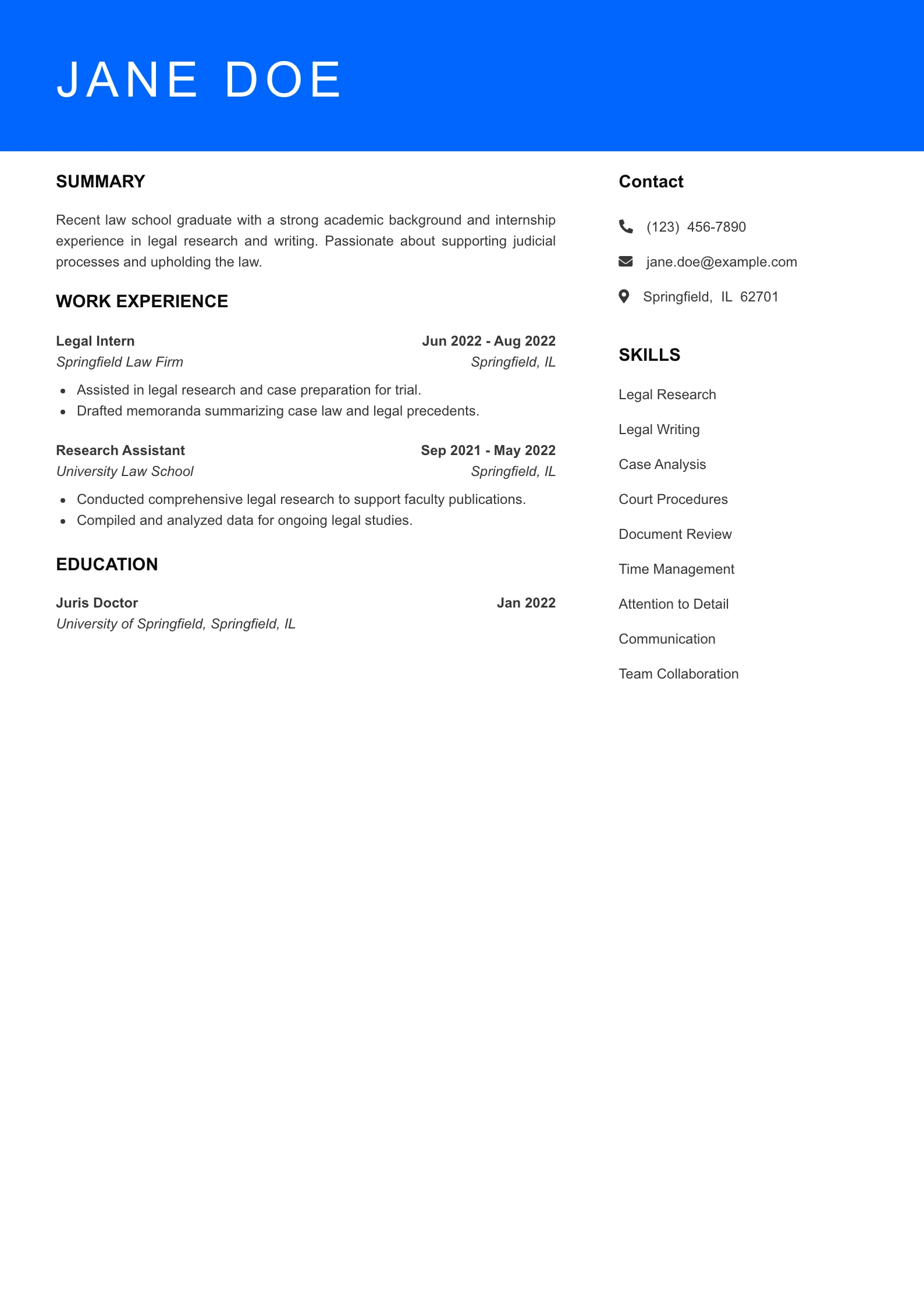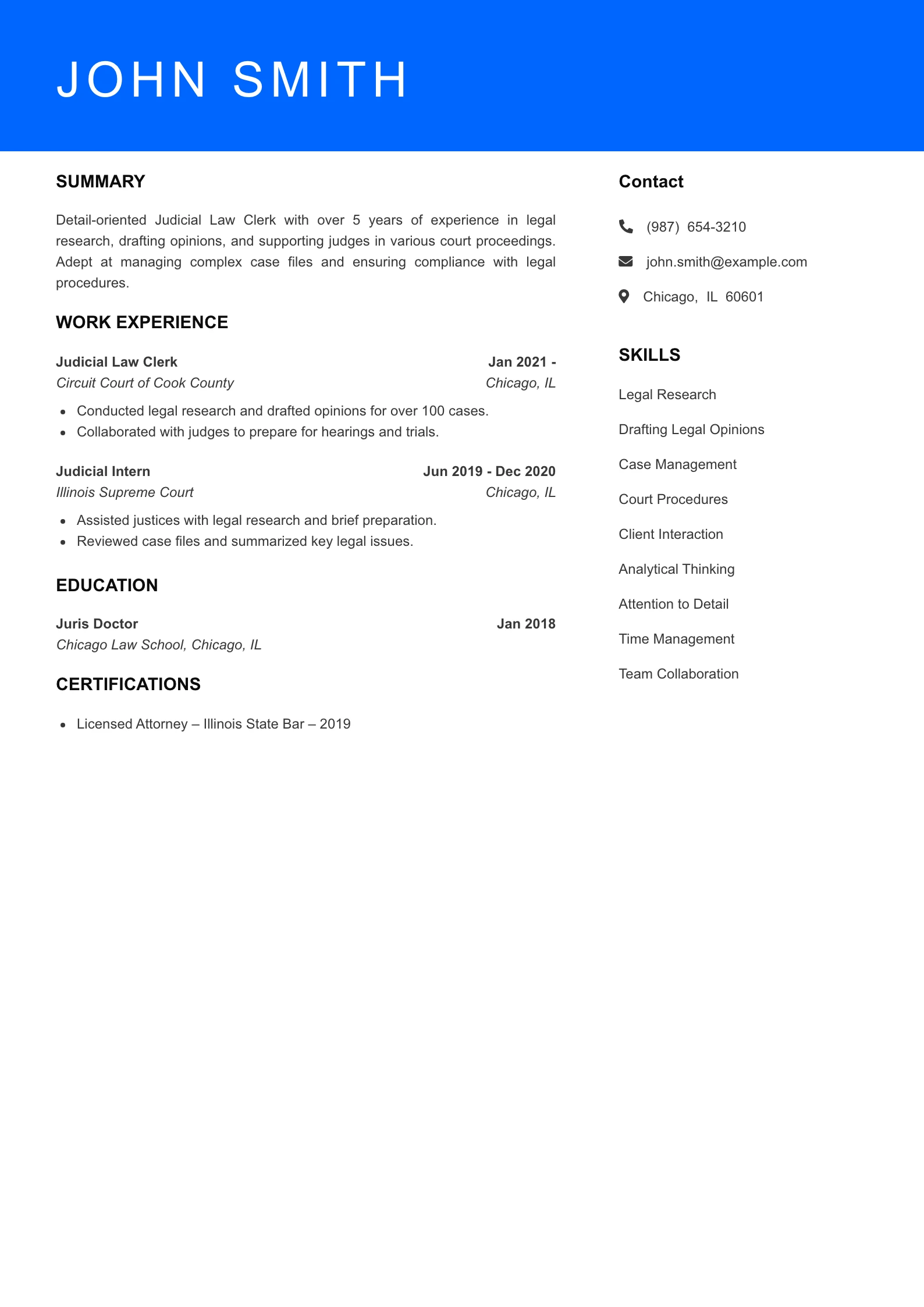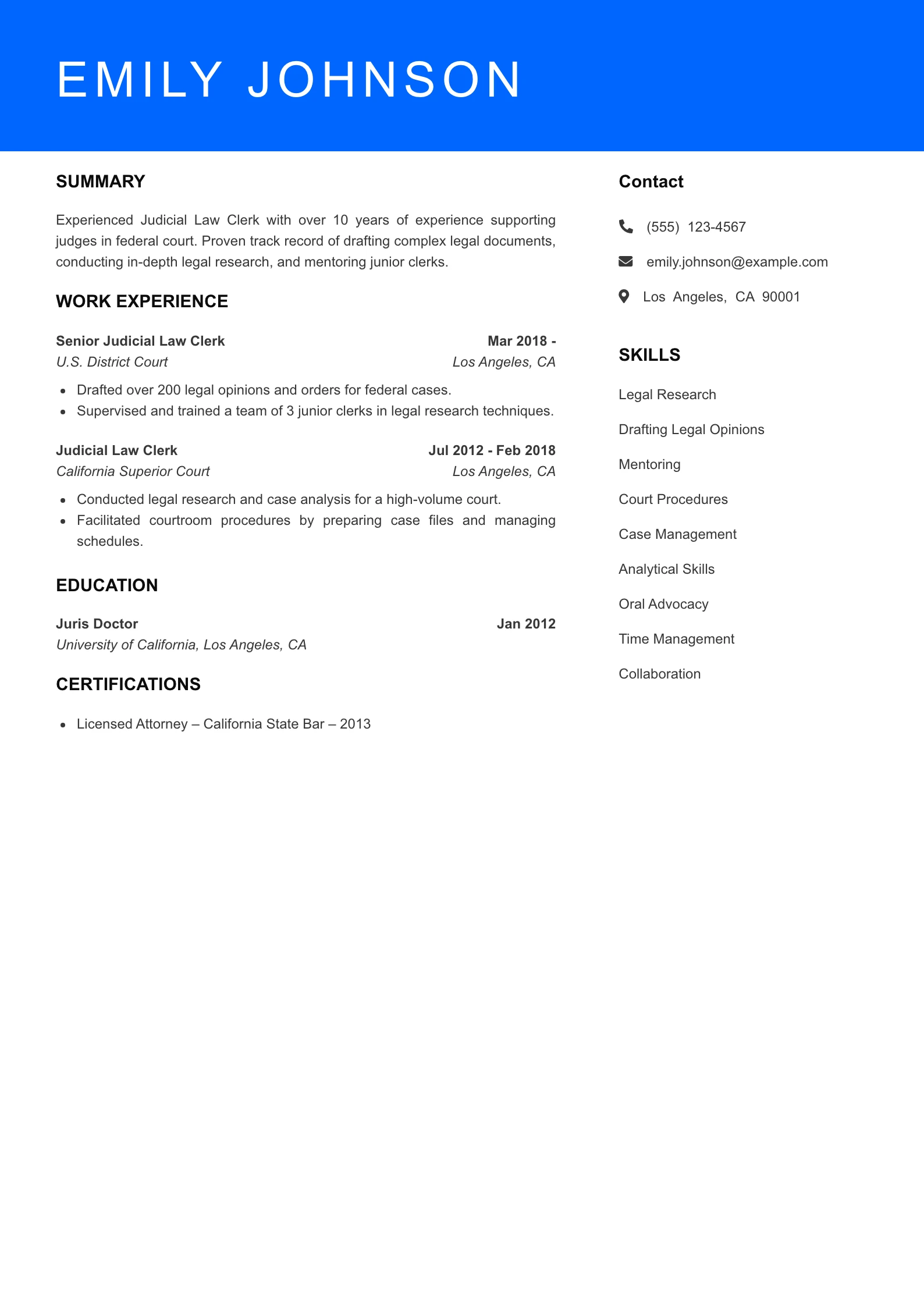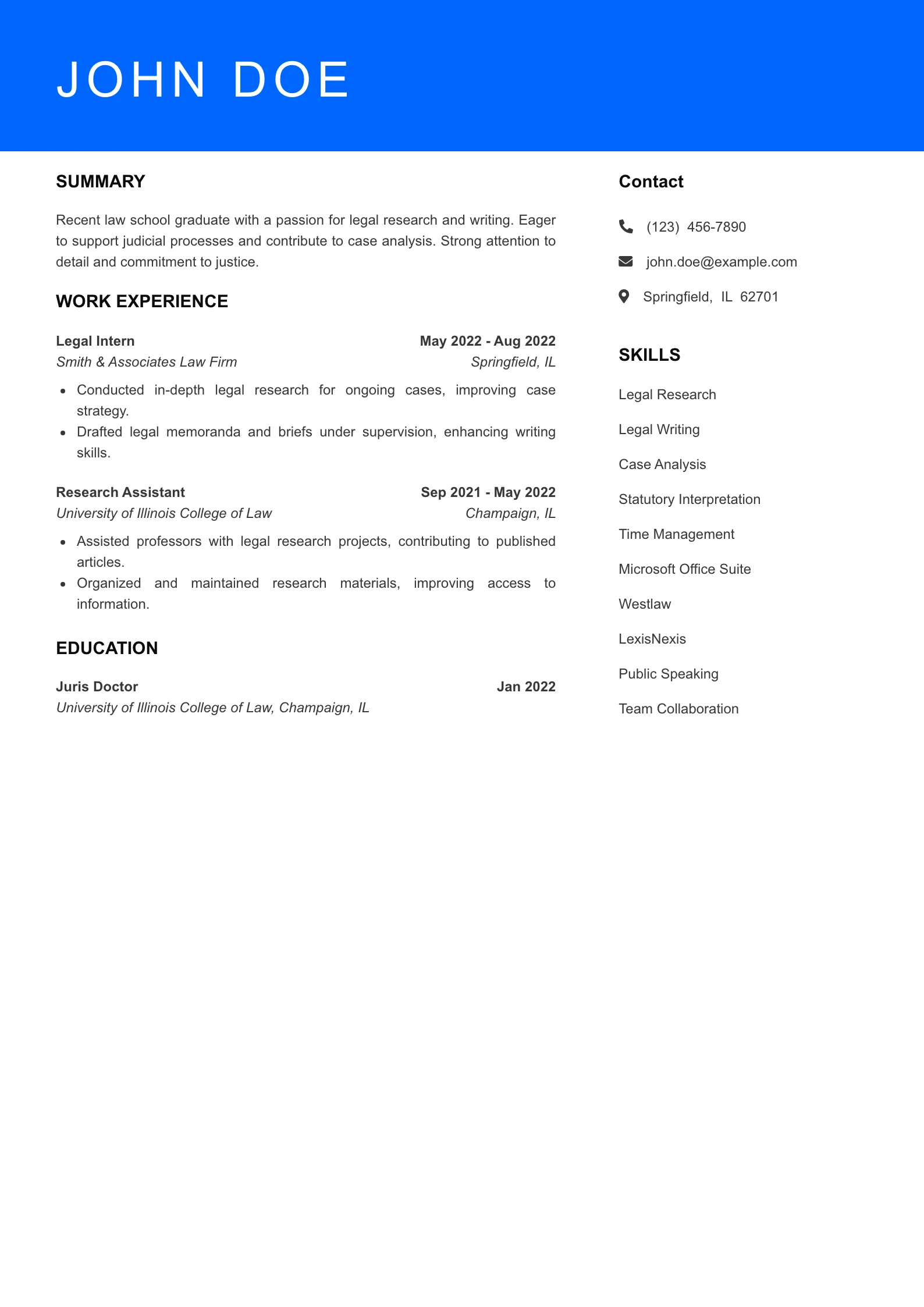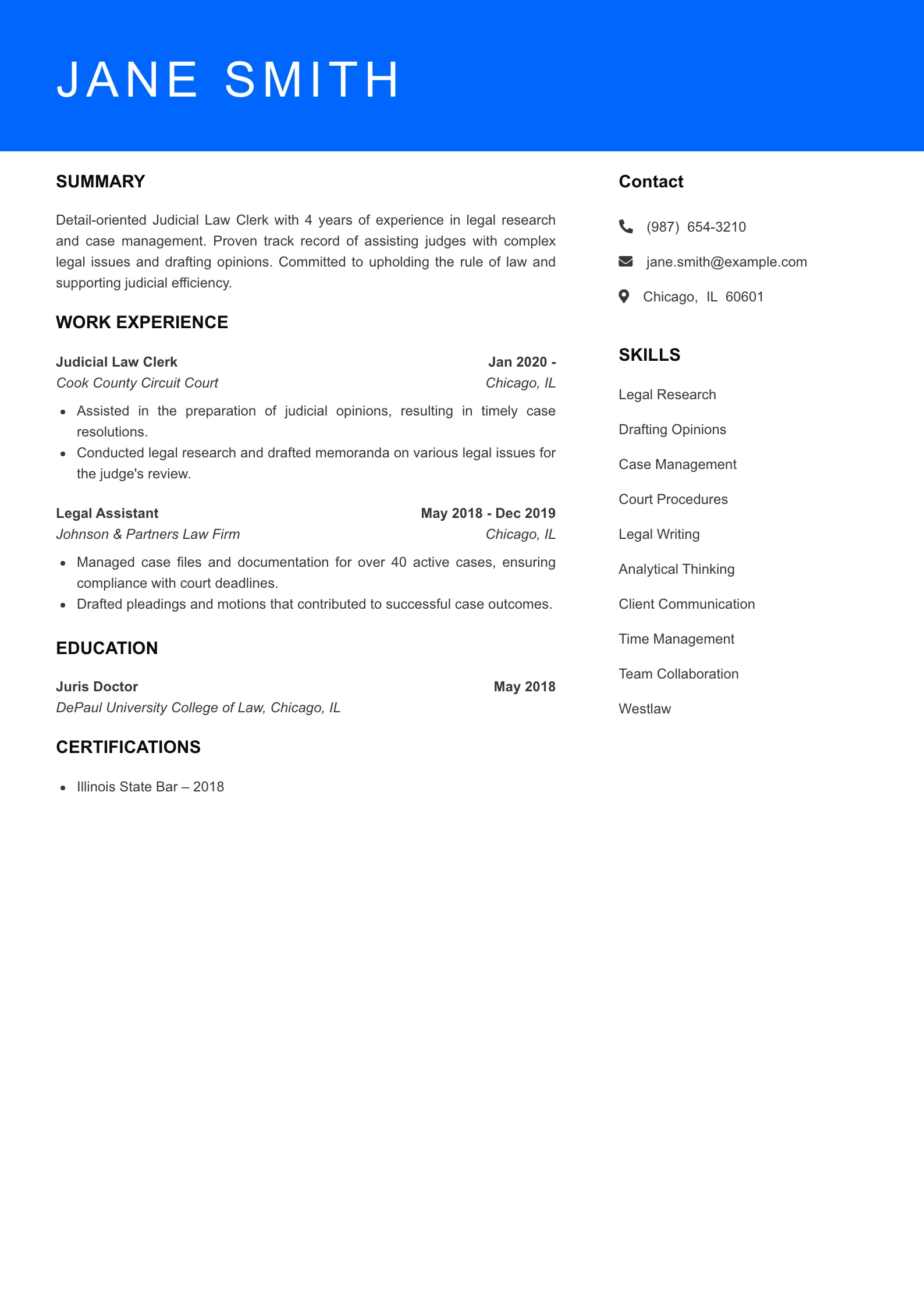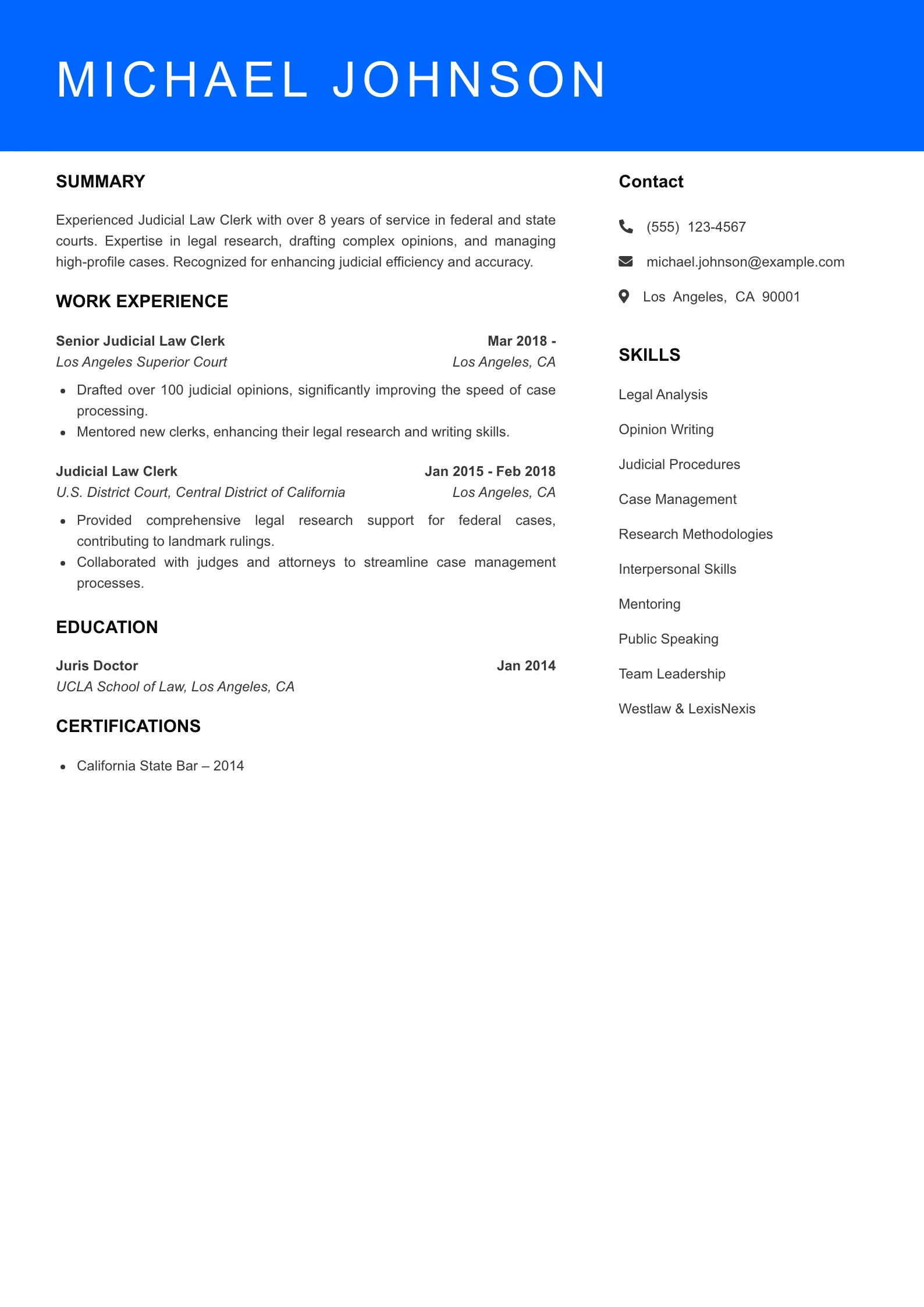Your Guide to Legal Resumes That Get Noticed
Crafting a standout resume is crucial in the competitive legal industry, where precision and professionalism can set you apart from other candidates.
Introduction to the Job Sector
In the legal industry, a well-crafted resume serves as your first impression, making it essential for securing an interview. Hiring managers in this field are inundated with applications, and a compelling resume can differentiate you from a sea of candidates. Whether you’re applying for a paralegal position, a law clerk role, or looking to become an attorney, your resume needs to reflect not only your qualifications but also your understanding of the legal landscape.
Hiring managers typically seek candidates who possess a strong educational background, relevant experience, and specific legal skills. They look for evidence of critical thinking, attention to detail, and the ability to communicate effectively—both in writing and orally. On this page, you will find tailored resume examples that highlight these qualities, along with actionable tips to enhance your application.
Employment Trends and Statistics
- The Bureau of Labor Statistics projects that employment for lawyers will grow by 10% from 2021 to 2031, which is faster than the average for all occupations.
- Paralegals and legal assistants are expected to see a growth rate of 12% in the same period, reflecting an increasing demand for legal support staff.
- The median annual salary for lawyers is approximately $126,930, while paralegals earn around $56,230, according to the latest data.
- Technology in law is evolving, leading to new roles in fields such as legal tech and compliance, highlighting a shift in job demand.
- Specialized areas of law, such as environmental, intellectual property, and healthcare law, are seeing increased hiring as businesses navigate complex regulations.
Resume Tips for Legal Professionals
To create a compelling resume that resonates in the legal field, consider these essential elements:
- Education and Credentials: Clearly list your degrees and any specialized certifications (e.g., bar admission, paralegal certifications) prominently.
- Relevant Experience: Detail your legal experience, including internships, clerkships, or positions held, emphasizing your responsibilities and achievements in each role.
- Skills Section: Include hard and soft skills, such as legal research, writing proficiency, analytical thinking, and client management, tailored to the specific position you’re applying for.
- Professional Formatting: Use a clean, professional layout with clear headings and bullet points to enhance readability. Ensure consistency in font style and size throughout.
- Tailored Content: Customize your resume for each application by incorporating keywords from the job description, demonstrating that you understand the specific needs of the employer.
- Action-Oriented Language: Use strong action verbs to highlight your accomplishments and contributions, such as “drafted,” “negotiated,” or “managed.”
By following these guidelines and exploring the examples provided, you can create a resume that effectively showcases your qualifications and makes a lasting impression in the legal field.
Judicial Law Clerk – Top Resume Examples
Judicial Law Clerk – Top Resume Examples
Crafting Your Path to Success in the Legal Realm
Creating a standout resume is essential for aspiring Judicial Law Clerks aiming to break into a competitive field. This guide provides curated resume examples tailored to showcase your qualifications and legal expertise.
Understanding the Judicial Law Clerk Sector
In the legal world, a well-crafted resume serves as your first impression and can significantly impact hiring decisions. Judicial Law Clerks play a crucial role in the judicial system, providing essential support to judges through legal research, drafting opinions, and preparing case summaries. Given the complexity and demands of the position, hiring managers are looking for candidates who not only possess strong legal acumen but also demonstrate effective communication skills and attention to detail in their resumes.
To capture the attention of hiring managers, candidates must highlight their educational background, relevant legal internships, and any specialized training. This page offers a comprehensive overview of top resume examples that can help you present your qualifications effectively, along with insights into industry expectations and best practices.
You will discover a wealth of resources, including tailored resume examples that reflect the skills and experiences sought by employers in the legal field. Whether you’re a recent law school graduate or an experienced professional, this guide is designed to help you craft an impactful resume that stands out in the hiring process.
Employment Trends and Statistics
- Job Growth: The employment of judicial law clerks is expected to grow by 6% from 2021 to 2031, indicating a steady demand for legal support roles.
- Average Salary: According to the Bureau of Labor Statistics, the median annual wage for judicial law clerks is approximately $60,000, with variations based on experience, location, and the specific court system.
- High-Demand Locations: Major urban areas with a concentration of courts and legal firms, such as New York, Los Angeles, and Chicago, show the highest demand for judicial law clerks.
- Educational Requirement: Most employers typically require a Juris Doctor (JD) degree, with many candidates also completing clerkships, internships, or law reviews to enhance their resumes.
- Skills in Demand: Proficiency in legal research, writing, and analytical skills are consistently highlighted as critical competencies sought by hiring managers.
Resume Tips for Judicial Law Clerk Professionals
To create a compelling resume for a judicial law clerk position, consider incorporating the following essential elements:
- Professional Summary: Begin with a concise summary that highlights your legal education, clerkship experience, and key skills relevant to the position.
- Educational Credentials: Clearly list your JD degree, including your law school, graduation date, and any honors or distinctions earned.
- Relevant Experience: Highlight any internships or clerkships, detailing specific tasks and accomplishments that demonstrate your ability to support legal proceedings.
- Key Skills: Emphasize skills like legal research, writing proficiency, case management, and familiarity with court procedures.
- Certifications and Memberships: Include any bar admissions, legal certifications, or memberships in professional organizations that bolster your qualifications.
- Formatting: Use a clean and professional layout with consistent fonts and bullet points, ensuring easy readability for hiring managers.
See More Judicial Law Clerk – Top Resume Examples →
Ready to create an outstanding resume? Use our resume builder to create an outstanding resume in 15 min.
Judicial Law Clerk – Top Resume Examples
Discover Your Path in Judicial Law Clerk Careers
Unlock the potential of your legal career with expertly crafted resumes designed for Judicial Law Clerk positions. Explore top examples and get the insights you need to stand out in this competitive field.
Understanding the Judicial Law Clerk Sector
In the legal profession, a well-structured resume is paramount for judicial law clerks. It serves as your first impression with hiring managers, showcasing not only your qualifications but also your ability to present complex information succinctly and clearly. Given the competitive nature of legal positions, a tailored resume can be the difference between landing an interview or getting overlooked. Hiring managers are typically looking for candidates who not only have robust academic backgrounds and relevant experience but also possess strong legal research and writing skills.
On this page, you will find a wealth of resources tailored specifically for aspiring judicial law clerks. From comprehensive resume examples to actionable tips and trends in the field, we aim to equip you with the tools necessary for crafting a standout resume that reflects your qualifications and dedication to the legal profession.
Employment Trends and Statistics
- The employment of judicial law clerks is projected to grow by approximately 6% over the next decade, reflecting a steady demand for legal assistance in the judiciary.
- Average salaries for judicial law clerks vary by region, but typically range from $50,000 to $85,000 annually, depending on experience and location.
- As of 2023, about 40% of judicial law clerks are employed in federal courts, with opportunities also available in state courts and various legal organizations.
- Many law graduates seek clerkship positions as a stepping stone, with nearly 25% of law school graduates pursuing this route immediately after graduation.
- Employers increasingly value clerkship experience as it demonstrates familiarity with legal procedures and case law.
Resume Tips for Judicial Law Clerk Professionals
To create an effective resume for a judicial law clerk role, consider the following must-have elements:
- Tailored Objective Statement: Begin with a strong objective that reflects your career aspirations and highlights your relevant legal skills.
- Relevant Experience: Include internships, clerkships, or positions in law firms that demonstrate your legal research and writing abilities. Be specific about your contributions and outcomes.
- Education and Certifications: List your law degree, any relevant coursework, and certifications (e.g., bar admission, legal research certifications) to emphasize your academic credentials.
- Skills Section: Highlight key competencies such as legal analysis, case management, and proficiency in legal research tools (e.g., LexisNexis, Westlaw).
- Professional Affiliations: Mention memberships in legal associations or organizations to showcase your engagement in the legal community.
- Formatting and Clarity: Use a clean, professional layout with clear headings and bullet points to make your resume easy to read. Ensure consistency in font and style throughout.
With these elements in mind, you’ll be well on your way to crafting a compelling resume that captures the attention of hiring managers in the judicial field.
See More Judicial Law Clerk – Top Resume Examples →
Ready to create an outstanding resume? Use our resume builder to create an outstanding resume in 15 min.

